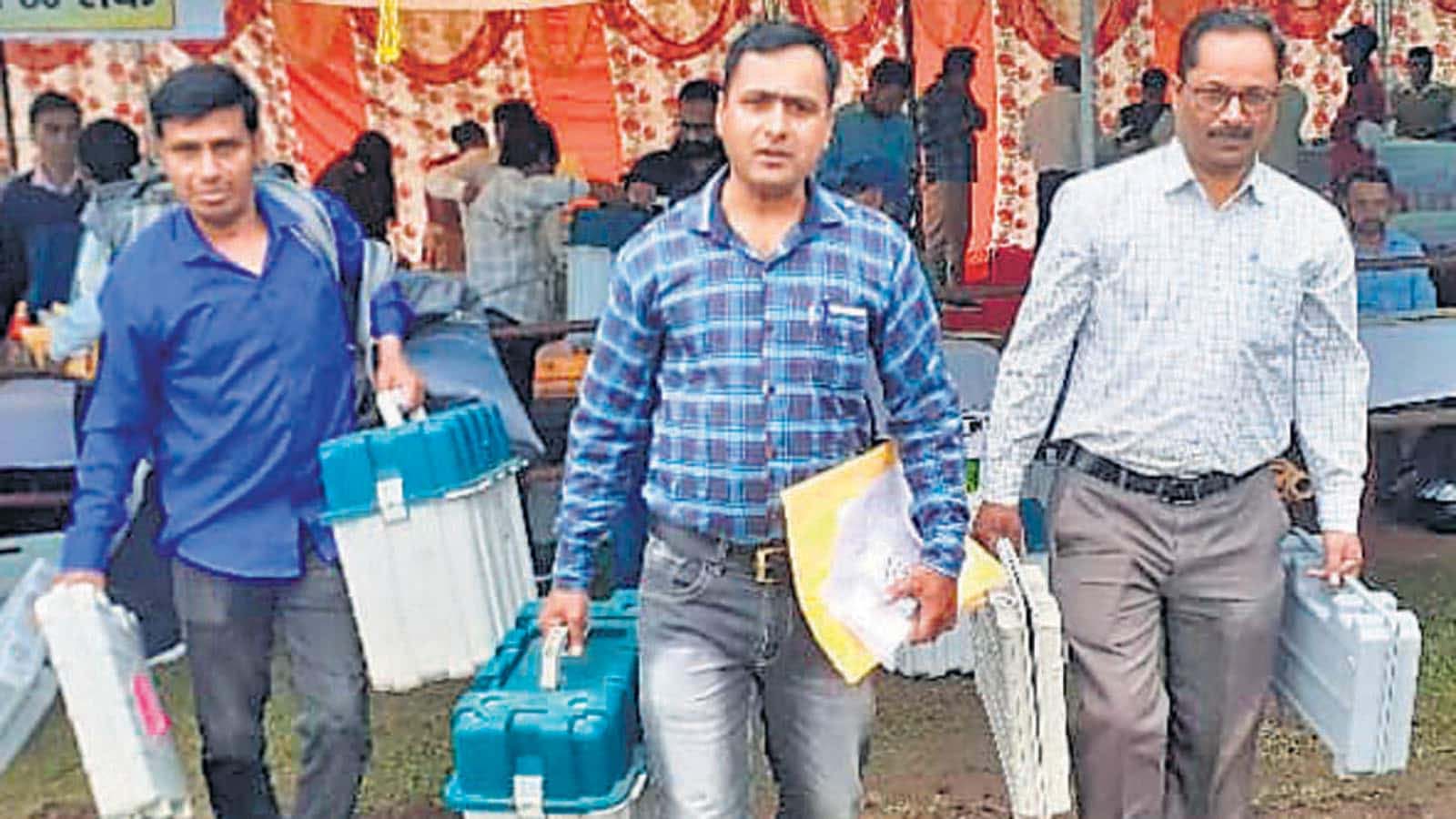Upon the declaration of the 2024 Lok Sabha polls schedule by the Election Commission of India (ECI), the entirety of the state apparatus, spearheaded by the Chief Electoral Officer, has commenced the electoral process.
The Election Commission necessitates a considerable workforce for the execution of the polls, drawing personnel from diverse government sectors, including governmental educators and public sector entities such as nationalized financial institutions and the Life Insurance Corporation (LIC).
The personnel enlisted for polling duties encompass Presiding Officers, Polling Officers, Sector and Zonal Officers, Micro-Observers, Assistant Expenditure Observers, as well as drivers, conductors, and vehicle cleaners employed for election purposes, among others. Law enforcement officials tasked with maintaining security and order, along with various administrative officers including Returning Officers, Assistant Returning Officers, and District Election Officers, contribute to the election process across all states and union territories.
Some individuals may exhibit reluctance to fulfill their polling duties, seeking exemptions from their assigned responsibilities. However, there is minimal leeway for absenteeism among those rostered for election duties, as non-attendance may incur penalties from the Commission.
As per a notification from the Department of Personnel and Training, the Election Commission holds jurisdiction over officers, staff, and police personnel deployed for election duties, empowering it to suspend individuals for acts of insubordination or neglect of duty. Furthermore, the Commission is authorized to recommend disciplinary actions to the competent authority for such infractions occurring during election duty.
Exemptions from election duties are only granted under specific circumstances, requiring government employees to provide substantiated evidence to their superiors. The authority to grant exemptions and release individuals from election duties rests solely with the District Election Officer (DEO).
In most districts, the District Collector assumes the role of the DEO, as stipulated by Section 13AA of the Representation of the People Act 1950. The DEO operates under the supervision of the Chief Electoral Officer, overseeing and directing election-related activities within the district.
According to Deputy Election Officer Shashikant Mangrule of Nashik district, government employees or personnel from state-sponsored enterprises may request exemption from drafted election duties under certain criteria. However, only the District Collector, also serving as the DEO for Nashik district, possesses the authority to issue orders regarding the cancellation of election duties.
One criterion entails the cancellation of duty if an employee is assigned tasks at two disparate locations, making it unfeasible to fulfill obligations at both sites. Another criterion pertains to political affiliations; individuals associated with a particular political party may seek exemption based on their political allegiances, provided they furnish evidence thereof.
A third criterion permits the cancellation of poll duty for individuals with pre-booked overseas trips coinciding with the Lok Sabha election dates. However, the trip must be pre-arranged, and documentary evidence, including tickets and visas, must be provided as proof of travel.
Additionally, individuals afflicted with acute cardiac conditions or rare illnesses impairing their functionality may also seek exemption from election duties, subject to submission of requisite medical documentation.
Each district necessitates a substantial number of polling personnel for the execution of election duties on polling day. Training sessions for polling personnel have commenced, with master trainers identified to impart training on their designated roles for polling day.
The polling is scheduled to occur in seven phases, spanning from April 19 to June 1, with the counting slated for June 4.









